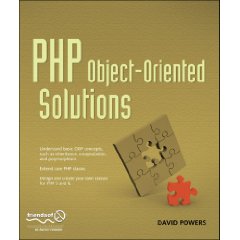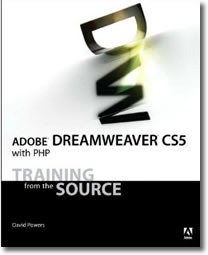Conference Sessions
TODCON, Las Vegas, NV, June 2007
Dynamic Data and Beyond with Dreamweaver
Dreamweaver server behaviors and application objects can take you a long way in a basic web application, but frequently you need more. The first part of this session will show the basic Dreamweaver server behaviors for displaying, inserting, and updating data and how to make best use of them. From there, we will get into modifying the code for such things as multiple inserts and updates, and creating grids for horizontal looping of data. PHP and ColdFusion will be shown in the session.
ColdFusion Custom Tags
ColdFusion developers have had Custom Tags in their arsenal of tricks since the early days of ColdFusion. With CFMX, the language has made it even easier to use custom tags on your pages. With the introduction of ColdFusion Components (CFC) in CFMX, the custom tag has taken a back seat to the versatility of CFCs, but some things are ideally suited to the ColdFusion Custom Tag API. This session will introduce custom tags and address one use of a ColdFusion custom tag: building a flexible template for your site that will feed every page on the site, based on a Community MX Jumpstart.
TODCON, Las Vegas, NV, April 2005
Creating a Simple Blog with Dreamweaver
One of the frequent questions in the forums is "How do I create a blog?" There are many commercial blog systems out there, and many full-featured blog providers, like Blogger, but you can also create a simple blog using the standard tools of Dreamweaver. This session will be equally applicable to ColdFusion, ASP, PHP, ASP.NET, or JSP because we will be using standard Dreamweaver server behaviors to create the blog.
Examples and articles
SQL Tricks and Traps for Access, SQL Server, MySQL, and other databases
SQL is the language of the database. Many developers have a tendency to allow the visual tool that comes with the database to automatically write the SQL statements for your application. Some web developers even use the rudimentary SQL building tools of Dreamweaver MX to create the SQL for a web page. These tools are not bad, but frequently the SQL becomes hard to read because it has not been formatted or optimized. Writing a readable SQL statement can be an art in itself. This session will show you a few techniques for creating readable SQL, and a few tricks for returning the data you want.
Examples and articles
CFUN, Rockville, MD, June 2004
Flash Remoting 101 Using ActionScript 2.0 Components
When you hear the term "Flash Remoting", you might be wondering what exactly is being referred to. Macromedia's latest push towards the Rich Internet Application has at its core the Flash Remoting technology. This session will give you a brief introduction and show you the necessary requirements to getting it up and running on your machine and your web server, and show a few examples of Flash Remoting applications using the new Flash Remoting components that came out in June 2004.
Todcon, Orlando, April 2004
Advanced Database Programming
You can realize tremendous performance increases by allowing your database to do what it does best. In this session you will learn to write Stored Procedures in SQL Server and use them in Dreamweaver. We will cover simple queries, SQL Command, advanced T-SQL concepts, and creating recordsets and commands from Stored Procedures in Dreamweaver.
ColdFusion Custom Tags
ColdFusion developers have had Custom Tags in their arsenal of tricks since the early days of ColdFusion. With CFMX, the language has made it even easier to use custom tags on your pages. With the introduction of ColdFusion Components (CFC) in CFMX, the custom tag has taken a back seat to the versatility of CFCs, but some things are ideally suited to the ColdFusion Custom Tag API. This session will introduce custom tags and address one use of a ColdFusion custom tag: building a flexible template for your site that will feed every page on the site.
Todcon, Vegas, June 2003
Code Reuse with Custom Server Behaviors in Dreamweaver MX
Being able to reuse existing code is one of the ways you can increase your productivity. One way to reuse code in Dreamweaver MX is to use Snippets. Snippets are sections of code that can be inserted into a page. Server Behaviors take this one step further by allowing snippet-like sections of code that have user-defined parameters. The cool thing is that they are as easy to create as Snippets. This session will show you how.
Server behaviors (MXP package and individual files)
Links:
DW MX: The Complete Reference (chapter on Server behaviors)
Building DW 4 and DW UltraDev 4 Extensions (book on extensions)
Using Dreamweaver for ColdFusion development
Do you want to use Dreamweaver MX but are afraid of the new interface? Do you want to make it look like CF Studio but don't know how? This session will give you the power tools in Dreamweaver so that you can be coding faster and smarter.
Links:
Flash Remoting 101
When you hear the term "Flash Remoting", you might be wondering what exactly is being referred to. Macromedia's latest push towards the Rich Internet Application has at its core the Flash Remoting technology. This session will give you a brief introduction and show you the necessary requirements to getting it up and running on your machine and your web server, and show a few examples of Flash Remoting applications.
TODCON, Chicago, Sept 2002
I did two presentations at TODCON in Chicago, Sept 6-8, 2002. The files for those presentations are here:
Create Custom Server Behaviors in Dreamweaver MX
Learn to use the Dreamweaver Server Behavior Builder to encapsulate your own code into easy to use server behaviors. Don't like the way Dreamweaver codes something? Make it do it your way without losing the convenience of these powerful extensions.
Server behaviors (MXP package and individual files)
Links:
DW MX: The Complete Reference (chapter on Server behaviors)
Building DW 4 and DW UltraDev 4 Extensions (book on extensions)
Business Interactivity: Build Great Forms with Macromedia Studio MX
Forms control communication in online communities, access by way of user verification, and orders in e-commerce. Building forms is as much about determining what the user needs as it is about the data you seek to collect. Learn how to use Dreamweaver MX and Flash MX tools to create self-validating forms and control output. Use drag-and-drop widgets and attach behaviors to speed development and add power. And learn how to integrate these forms with your application's design.
Other Links:
Macromedia's Flash blueprint application (from demo) http://www.macromedia.com/desdev/mx/blueprint/
Macromedia Exchange (validation behaviors) http://www.macromedia.com/exchange
Desdev center: http://www.macromedia.com/desdev
Webbuilder Files
Also, I did two presentations at Webbuilder in Las Vegas, Sept 9-11. The files for those presentations are here:
Business Interactivity: Build Great Forms with Macromedia Studio MX
Forms control communication in online communities, access by way of user verification, and orders in e-commerce. Building forms is as much about determining what the user needs as it is about the data you seek to collect. Learn how to use Dreamweaver MX and Flash MX tools to create self-validating forms and control output. Use drag-and-drop widgets and attach behaviors to speed development and add power. And learn how to integrate these forms with your application's design.
Other Links:
Macromedia's Flash blueprint application (from demo) http://www.macromedia.com/desdev/mx/blueprint/
Macromedia Exchange (validation behaviors) http://www.macromedia.com/exchange
Desdev center: http://www.macromedia.com/desdev
Dreamweaver MX: Build Real World Web Applications Today
Web applications and database integration are hot topics for today's developer. Attend this session, and you'll learn the best practices for developing applications and how to choose from the many server technologies supported by Dreamweaver MX. You'll find out how to create and edit records, retrieve records, display results, and generate a detail page, then see examples of how it's all put together to create a professional, practical application.
Files created (ASP) and sample database



 Blog RSS feed
Blog RSS feed












